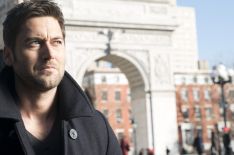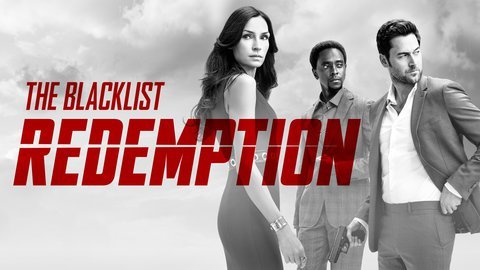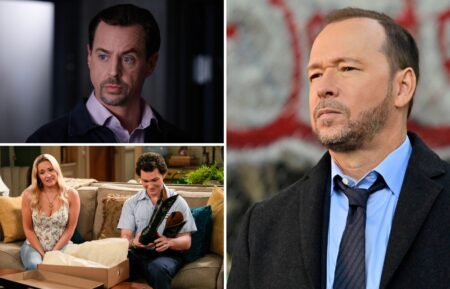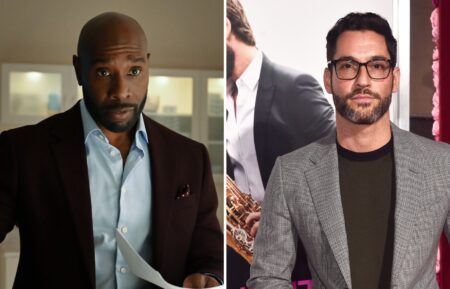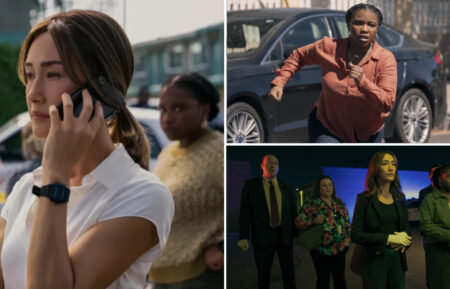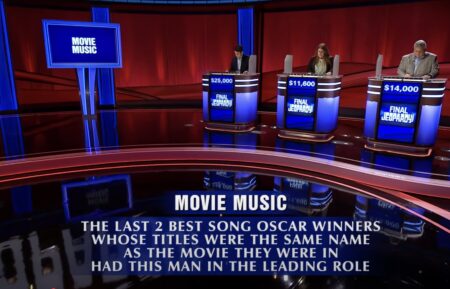Famke Janssen is the HBIC on ‘The Blacklist: Redemption’
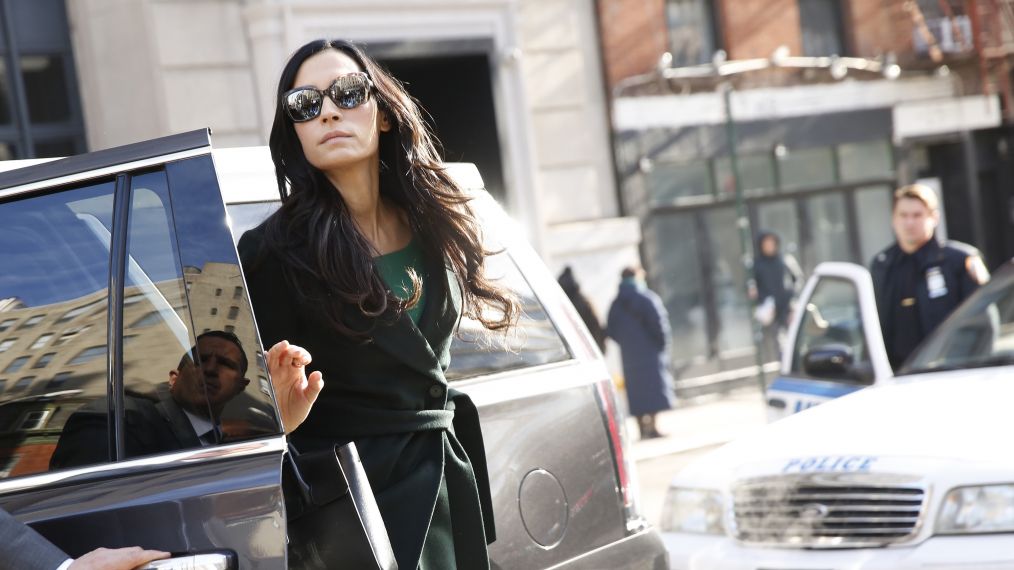
Fans of The Blacklist first met Scottie Hargrave, the mysterious head of an elite international security firm played by Famke Janssen, last season on the NBC FBI drama. Now Scottie is back, alongside The Blacklist’s Tom Keen (Ryan Eggold), in an all-new eight-episode spinoff. The Blacklist: Redemption may be steeped in sexy espionage, according to creator Jon Bokenkamp, but whatever you do, don’t call Janssen’s character a femme fatale. The Dutch actress, perhaps best known for her portrayal of super psychic Jean Grey in the X-Men movies, insists she’s playing a much more nuanced, complicated character than that term implies.
Janssen spoke with TV Insider recently about launching a spinoff, trying to keep secrets from prying journalists, and why her character may need a Xanax more than anything else.
When you took the role on The Blacklist, did you have any idea it might lead to a spin off?
Yes, I did. Or that it could potentially lead to a spinoff. I’d spoken before to the showrunners, to the Johns [four of the show’s executive producers are named “Jon” or “John”], about potentially coming on in the future to do something. I said, ‘Well, if I come on, I want to have a strong character arc.’ I didn’t want to just come on for one small episode arc. So I think that sort of planted the seed. Ultimately, this is what was presented. I would be filming two episodes that would sort of function as a backdoor pilot, and should they be received well, that would take us to the series.
We learned quite a bit about Scottie’s operation in Season 3. The theme of the new show is redemption—does that imply that her motives, the ways she operates, have changed since we last met her?
I think we’re going to uncover various aspects of Scottie’s past throughout the season, and kind of understand her motivations and what part of that deals with redemption, we’re going to see. It’s certainly a theme for all the characters involved. But what the specifics are of that, A) I don’t know, and B) if I did know, I don’t think I would tell you. [Laughs]
No spoilers, I get it.
I know. It’s no fun doing these interviews while you’re still shooting, and making sure people still have surprises to look forward to.
Is it really tough to talk about shows you’re filming, when you can’t give too much away?
I’ve been doing it for years with the X-Men movies. Whether I’m in one or not. You know, Is Jean Grey making another comeback? Is she resurrected yet again? So I’m good at keeping secrets.
In this case, it’s an added difficulty because we’re only on episode three right now. We’re not far into the filming process, so we actually don’t know that much. But, I mean, that’s the wonderful thing about television, episodic filmmaking. It does change a lot, even for the writers—what they’re thinking, what a season is going to look like. Once you start filming it becomes a kind of collaborative, interactive way of working. It does tend to change.
Does that make it tough to build a character, when you don’t know where she’s necessarily going?
I think the best example of that for me was when I did Nip/Tuck. I worked with Ryan Murphy, and it wasn’t until we were shooting, very close to the ending, I think, that he asked me to come to his office, and he said, “I have a great idea! Ava Moore is a man!” So I had been playing her as a woman for an entire season, and that was the shift that happened. And that’s what happens on television, which is so different from the background I have in film, where when you sign up, I know exactly what the script is, I know what the character arc is, I know who I play. This is a very different process. So you have to have faith in the writers, and you have to believe that they have a good sense [of where the story needs to go]. And if not, people certainly voice their opinions.
Do you find that exhilarating or is it frustrating?
Well, I wouldn’t say frustrating. It certainly can be exhilarating, and it can be scary. Because you don’t always know—you’re expressing yourself in one episode, and then another comes along and you find out, Oh, that’s what’s happening. If I’d known that would I have done something different? Like I said, you just have to have a lot of trust in the writers. And on Redemption, with John Eisendrath and Jon Bokenkamp, The Blacklist has been such a successful show, I don’t have to be worried. I trust that they know what they’re doing, and it’s my job to make Scottie as believable and real as I can.
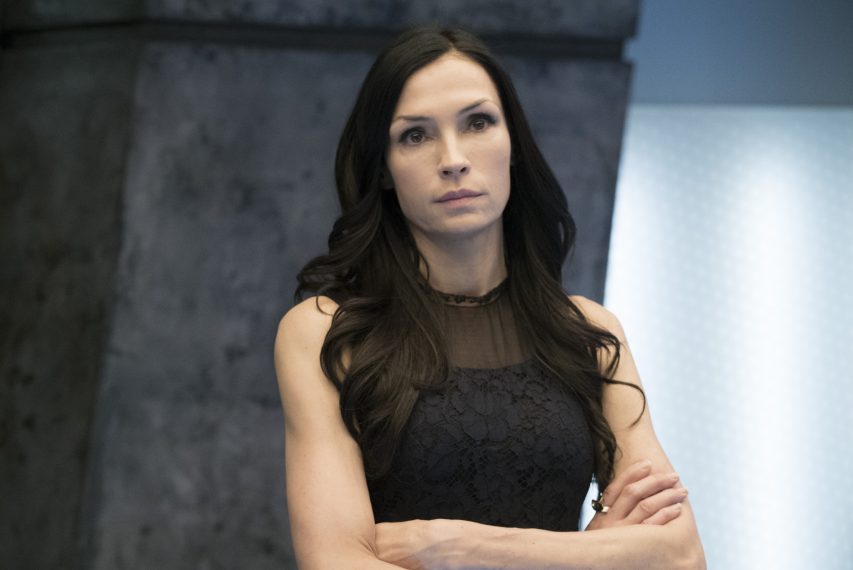
How did they pitch Scottie and her story to you?
A woman who’s extremely accomplished in her field, who’s ruthless at times, who’ll do whatever it takes to get the job done, but at the same time has this vulnerability, and has this very odd other side to her, which is this anxiety-ridden part which she shares in awkward moments. That was actually, for me, the selling point of the character, that I thought made her extremely unique in a way that we hadn’t really seen before. It’s a disarming quality, especially coming from that type of a woman who seems very much in control of her life, of her job, of people around her, the way she puts herself together—and then there’s that side to her. Tough as nails when it’s called for, but at the same time is broken. She’s a broken woman who’s had a very difficult thing happen to her with the loss of her son at a young age, and it’s defined every part of her.
She’s a bit of a femme fatale, which is a type of character you’ve played before. Do you have a sense of why people offer you those kinds of roles?
The always say 99 percent of casting is type casting. I guess the way I look—I have a strong look I suppose. Dark hair, people think I look exotic—although if they ever went to Holland, the Netherlands, they would not call that an exotic country, for sure. And I have an odd name, obviously, so instantly that puts you in the category. You’re either going to play a femme fatale or a villain, any of those types of things. And my modeling career. So, it might be the amalgamation of all of those things. I’m really not 100 percent sure. It’s hard for me to be objective about those types of things. But everybody in their career—there’s not an actor who doesn’t get type cast at some point. We all try to fight against it, and I think I’ve done that successfully in the more independent films that I’ve done. But sadly, a larger audience doesn’t get to see those. That’s where I’ve been experimenting and playing different characters over the years, working with Woody Allen, working with Robert Altman, working with Ted Demme on [Monument Ave.] where I play a townie, City of Industry with Harvey Keitel.
Do you have any thoughts about that sort of archetypal female character?
Well, first of all, I want to say that I’m not actually sure that Scottie fits that bill particularly well. I don’t know that she’s really a femme fatale. That’s certainly not how I’ve played her. It’s not really what we’re dealing with. Femme fatales generally are overtly sexual. They tend to be duplicitous. They have a different agenda that they use their sexuality to achieve. That’s not really Scottie. She’s a businesswoman and she’s a mother. It’s definitely not where we’re going with her. Am I put together, in terms of clothing, in a sharp way? Yes, but not dissimilar to almost any female character we see on television now in a network show. Even Viola Davis, who I worked with on How to Get Away With Murder, is always put together. I think that’s just very much the way that we’re portraying these women in a business environment.
You mentioned Scottie’s anxiety. There’s a moment in an episode of The Blacklist where that becomes really evident and it’s almost a moment of comic relief. Will be we seeing more of that on Redemption?
I hope we will more. In these stories, there are always very specific moments where that type of acting or storytelling works and others where it doesn’t. We certainly are trying to make that very much a part of her character. It’s who she is. I like it best when it comes out and she’s in a work environment, she’s in the middle of an interrogation with somebody and it throws them off, because it’s such an odd detour that she’s making. It can be seen as a different tactic. Or it can be seen like, Wow, this woman needs therapy! Or another Xanax or something.
You talked earlier about your Nip/Tuck role as Ava Moore, a transgender character at a time when there was barely a cultural conversation about trans issues. Do you think of that role differently now?
No, when I look back on it, I can only think, Wow, Ryan Murphy was really so far ahead of everybody. You know, when it comes to bringing that to everybody’s attention. It’s been around, of course, for an extremely long time. But in terms of it actually having it on television, that’s where Ryan was very much ahead of everybody. I’m proud that I played Ava Moore. It’s a role that was very challenging and interesting. I’m honored to have played her.
You mentioned that when you took the role, you didn’t know that Ava was a transgender character—and Ryan Murphy didn’t know! With the conversation these days about whether it’s appropriate for non-trans actors to take trans roles, do you think a plot twist like that could even happen now?
Well, look at Transparent. We have a person there who’s not transgender playing [a transgender character]. This is very much the role of an actor, embodying different characters. Of course, we want to make sure that transgender people have roles. Certainly I would never want to take a part away from anybody, but I do think we have to keep in mind in general that actors embody other people. And that can mean many different things.
The Blacklist: Redemption, Series Premiere, Thursday, February 23, 10/9c, NBC

